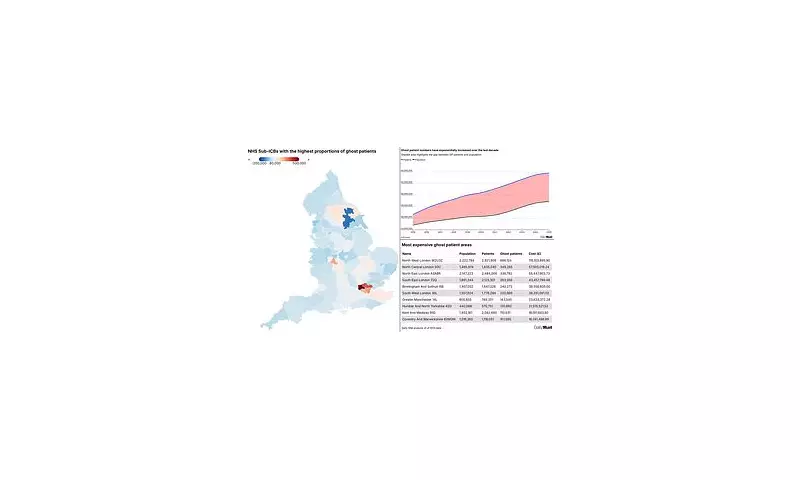
A staggering investigation has uncovered that approximately five million 'ghost patients' remain registered with GP surgeries across England, exposing a massive drain on NHS resources while genuine patients face increasingly long waits for appointments.
The Scale of the Problem
According to analysis of official NHS Digital data, GP practices are receiving funding for millions of patients who likely don't exist, have moved away, or have passed away. This represents nearly one in ten of all registered patients, creating a parallel healthcare system where money flows for non-existent care.
Financial Impact on Taxpayers
The cost to taxpayers is astronomical. With the average GP receiving approximately £164 annually per patient, this ghost patient crisis could be costing the NHS up to £820 million each year. This comes at a time when the health service faces unprecedented financial pressures and growing waiting lists.
How Ghost Patients Accumulate
The phenomenon occurs through several channels:
- Patients moving abroad without informing their GP
- People relocating within the UK and registering with new practices
- Deceased patients not being removed from practice lists
- Duplicate registrations and administrative errors
Real-World Consequences
While funding flows for phantom patients, real people are suffering. The Daily Mail's investigation found numerous cases of patients waiting weeks for appointments, with some being told to call back another day despite urgent medical concerns.
Government Response and Solutions
NHS England has acknowledged the issue, stating they're 'taking action' to ensure greater accuracy in patient lists. Proposed solutions include more frequent list cleaning and better data sharing between practices. However, critics argue the problem has been allowed to fester for years without meaningful intervention.
The discovery raises serious questions about financial accountability within the NHS and whether current funding models adequately serve the patients who genuinely need care.





